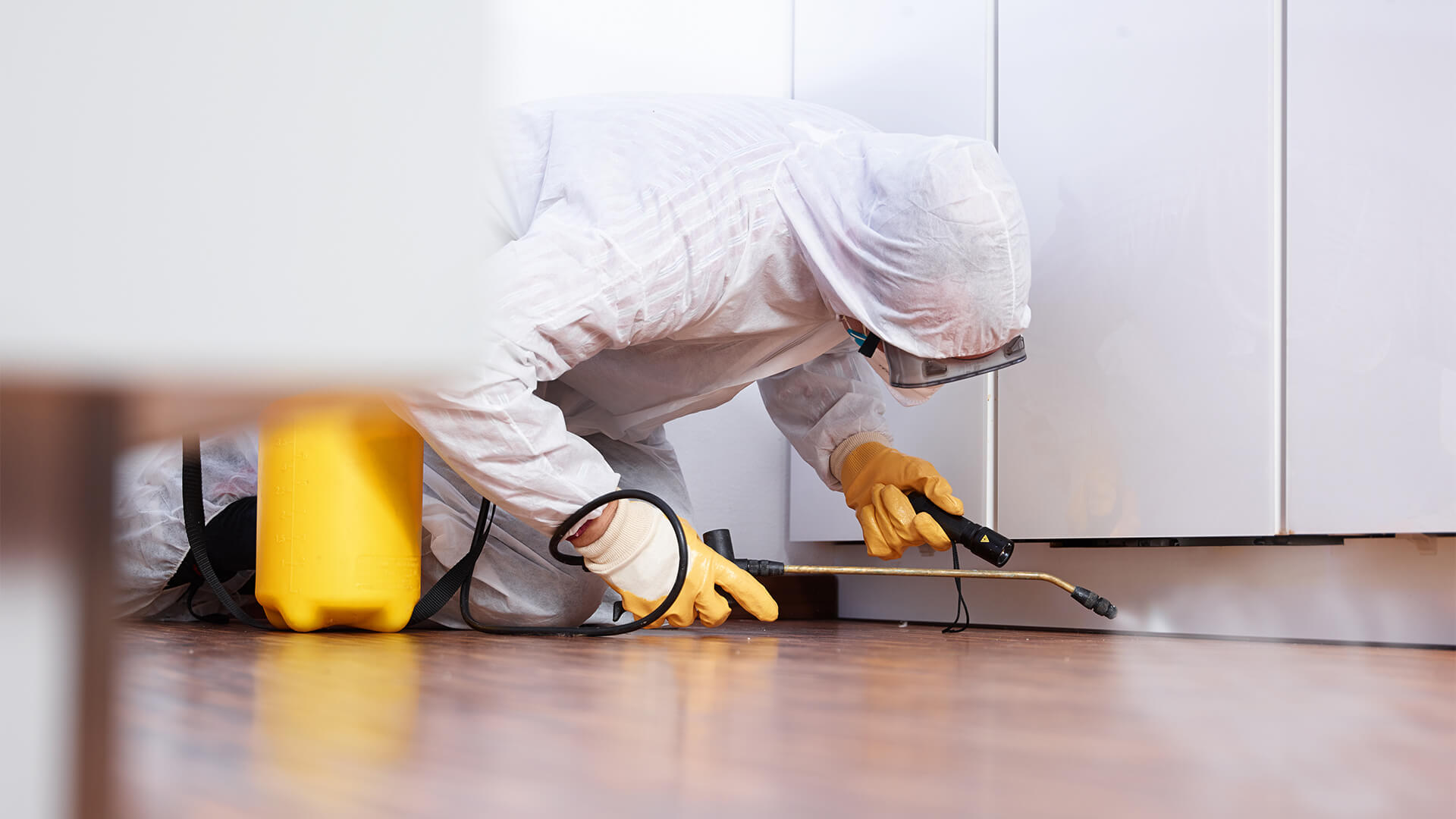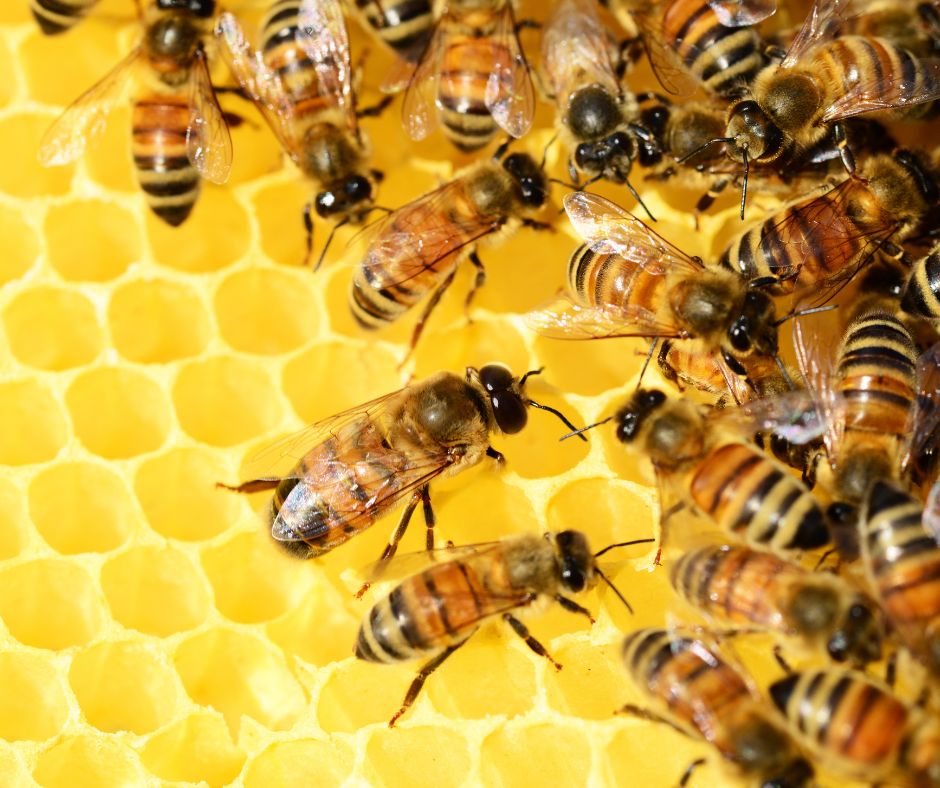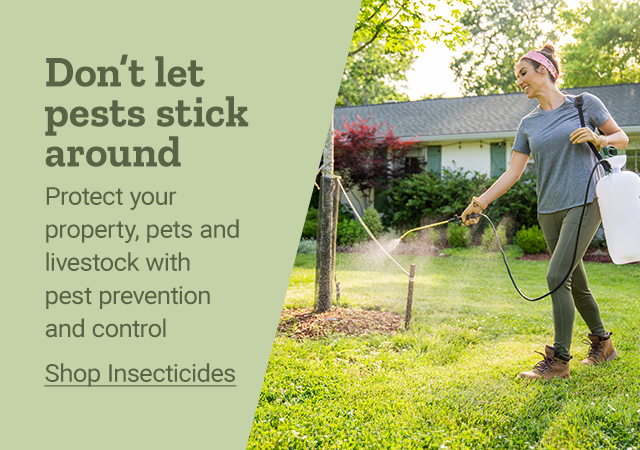Effective Termite Treatment Port Charlotte to Protect Your Property
Discover the Significance of Pest Control in Keeping a Healthy Setting and Treatment Techniques

The Role of Bugs in Communities
Parasites, frequently watched entirely as annoyances, play a multifaceted function in communities that is crucial for maintaining environmental equilibrium. They add substantially to various ecological procedures, including pollination, nutrition biking, and pest control. For circumstances, many insect types, such as and butterflies, are vital pollinators for a variety of plants, which subsequently sustains biodiversity and food production.
Furthermore, bugs function as prey for various killers, creating an important web link in food internet. This connection ensures the survival of different varieties and aids control populaces within ecosystems (Termite treatment Port Charlotte). Decomposer bugs, such as particular beetles and fungis, are crucial in damaging down organic matter, thus improving dirt and helping with nutrition recycling.
On the other hand, while bugs can be advantageous, their overpopulation or invasion right into non-native atmospheres may disrupt these ecological functions. This intricacy emphasizes the value of recognizing bug dynamics, as effective pest management approaches have to take into consideration both their ecological roles and potential effect on human activities. Stabilizing pest visibility while minimizing injury is important for protecting the stability of communities and guaranteeing farming efficiency.
Health Threats Connected With Pests
The visibility of insects in numerous atmospheres expands beyond their eco-friendly duties, as they likewise posture considerable health dangers to pets and human beings. Many pests, consisting of rats, bugs, and bloodsuckers, are providers of conditions that can have severe health ramifications. Rats are understood to transfer hantavirus and leptospirosis, both of which can lead to serious respiratory system and kidney concerns, specifically.
Insects such as ticks and insects are well known for spreading vector-borne conditions like malaria, dengue fever, and Lyme illness. These illnesses can result in high morbidity and mortality rates, specifically in at risk populations. Furthermore, parasites like bedbugs and cockroaches can intensify allergic reactions and bronchial asthma, adding to respiratory system problems in individuals, especially those with pre-existing conditions.
Moreover, the existence of bugs can bring about emotional stress and discomfort, impacting overall well-being. Contamination of food and surfaces by insect droppings and remains can result in foodborne diseases, highlighting the significance of keeping hygienic problems. Consequently, recognizing the wellness threats related to bugs is critical in recognizing the necessity of reliable parasite monitoring methods to secure human and animal health.

Benefits of Efficient Bug Control
Efficient bug control is crucial for keeping a healthy and balanced and secure environment, as it consistently reduces the various risks associated with pest infestations. One of the key advantages of efficient bug monitoring is the decrease of health and wellness risks. Insects such as cockroaches, mosquitoes, and rats are vectors for conditions that can impact both people and animals. By managing commercial termite control these populations, the likelihood of condition transmission is significantly lowered.
In addition, effective parasite control safeguards property and frameworks from damage. Several insects, like termites and woodworker ants, can trigger substantial structural damages that may need costly repair services. By proactively managing these home owners, invasions and services can secure their financial investments.
One more considerable advantage is the renovation of general quality of life. A pest-free setting adds to mental health and lowers stress connected with invasions. In addition, efficient pest control cultivates a safer environment for family pets and youngsters, making certain that homes continue to be sanctuaries devoid of hazardous chemicals and disease-causing organisms.
Usual Parasite Control Methods

In the realm of bug management, numerous techniques are utilized to fight problems successfully. These techniques can be extensively categorized right into 3 primary approaches: cultural, mechanical, and chemical controls.
Cultural control entails customizing techniques to decrease parasite reproduction, survival, and facility. This might consist of crop turning, correct cleanliness, and environment manipulation, which jointly develop an atmosphere much less conducive to pest expansion.
Mechanical control uses physical methods to get rid of parasites (Termite treatment Port Charlotte). Strategies such as traps, barriers, and vacuums are commonly used to directly remove pests from an area. This method is especially efficient for handling rodents and insects without using damaging chemicals
Chemical control includes the application of pesticides to manage pests. These substances can be categorized into herbicides, fungicides, and insecticides, each targeting details kinds of bugs. It is vital to make use of these chemicals deliberately, sticking to security guidelines and laws to decrease prospective damage to non-target species and the setting.
Each parasite control strategy has its limitations and benefits, and commonly, an integrated approach incorporating several methods generates the very best cause maintaining a pest-free setting.
Sustainable Parasite Administration Practices
Sustainable parasite administration practices include a variety of approaches created to reduce ecological effect while what does an exterminator do effectively managing pest populaces. These practices focus on making use of ecologically friendly techniques over chemical pesticides, thereby lowering the danger of injury to non-target types, consisting of useful pests, wildlife, and human beings.
Integrated Insect Administration (IPM) is a cornerstone of sustainable techniques, integrating organic, cultural, mechanical, and chemical methods to manage bugs. As an example, biological control includes presenting all-natural killers or parasites to reduce parasite populations. Social techniques, such as crop rotation and polyculture, interrupt pest life process and enhance environment strength.
Mechanical methods, such as traps or obstacles, can effectively avoid bug gain access to without chemical treatment. In addition, keeping healthy and balanced communities with correct dirt management, plant health, and biodiversity can naturally reduce insect problems.
Education and learning and understanding are crucial parts, encouraging communities and individuals to recognize pest risks early and execute safety nets. Termite treatment Port Charlotte. By promoting an all natural strategy that stabilizes parasite control with eco-friendly integrity, lasting bug administration methods not only protect frameworks and crops but also contribute to a much healthier atmosphere for future generations
Final Thought

Understanding the wellness dangers associated with bugs is important in recognizing the need of efficient pest administration strategies to secure human and animal wellness.
Efficient parasite control is necessary for maintaining a secure and healthy setting, as it regularly minimizes the various threats associated with parasite invasions.Integrated Parasite Administration (IPM) is a keystone of sustainable methods, incorporating organic, social, mechanical, and chemical techniques to take care of insects. By recognizing the duty of insects, identifying associated health and wellness threats, and employing diverse treatment strategies, a sustainable strategy to pest management can be achieved. Integrated Bug Monitoring (IPM) stresses a holistic approach that published here alleviates injury to beneficial organisms while efficiently managing bug populaces.